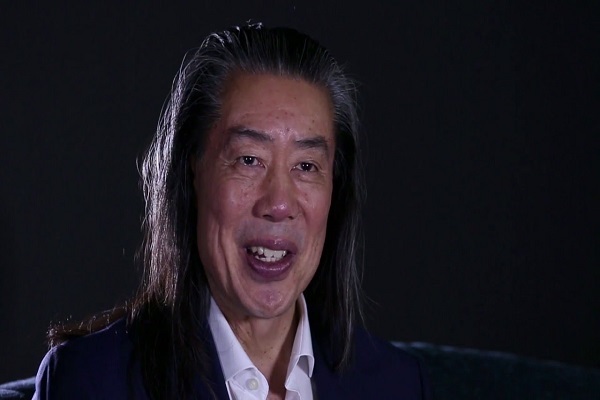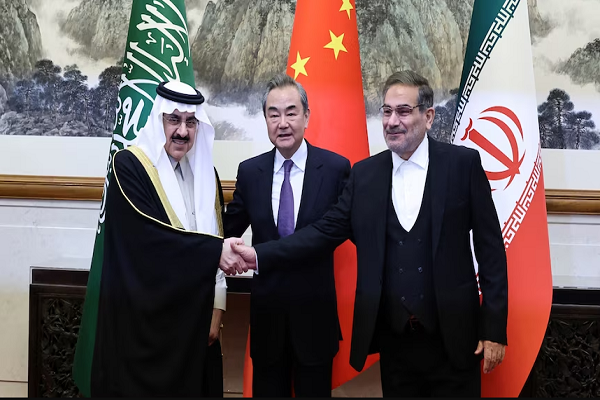US, Israel ‘Surprised’ by Iranian-Saudi Rapprochement: Acedemic

The two Muslim countries agreed to resume ties and re-open embassies after months of negotiations mediated in Iraq as well as days of intensive talks mediated by China. The rapprochement comes seven years after the two states severed ties over a series of issues.
To further discuss the development and its regional effects, IQNA has reached out to Stephen Chan, a professor of world politics and international relations at SOAS, University of London. He has published number of books on international relations and articles and reviews in the academic and specialist press, as well as journalistic feature articles.
Here is the full text of the interview:
IQNA: In your opinion, what are the effects of Tehran-Riyadh détente on the Middle East region, especially on the war in Yemen?
Chan: The diplomatic breakthrough will have effects throughout the region, not just because of a diplomatic re-engagement but what such re-engagement could lead to.
However, nothing should be assumed to be automatic. The war in Yemen, for instance, involves two sides who should not be seen simply as clients. They have strong agendas and causes of their own. So, although there may now be a possibility of negotiations, it is likely that negotiations will be protracted and difficult.
IQNA: What do you think is the biggest obstacle in achieving peace in Yemen?
Chan: Both sides in Yemen are well armed. Neither side will wish to give up any successes on the battlefield they think they have won. There will need to be a peacekeeping and monitoring force put into place and it is very difficult to ascertain which countries could be regarded as sufficiently neutral to contribute peacekeeping soldiers. And they would have to be high-end combat-capable soldiers as any ceasefires agreed would be prone to breaking down and, if nothing else, a peacekeeping force could get caught in serious crossfire.
IQNA: What effect do you think this normalization of relations between Tehran and Riyadh has on the influence of the United States and Israel in the Middle East?
Chan: The US and Israel were taken by surprise. Israel was relying on continuing Saudi antagonism towards Iran. Above all, Israel does not want an Iran powerful enough to establish effectively a balance of power with Israel. The Saudis knew they were helpful to Israel in their antagonism towards Iran. All calculations based on that antagonism must now be recast.
As for the USA, it never thought the Chinese could accomplish such a breakthrough. It establishes China as a diplomatic actor in a Middle East where hitherto they have been omitted as a meaningful actor. And, quite apart from this being an entry-point for China, the US would have been surprised by the high caliber of diplomacy that China deployed.

IQNA: Can it be said that this rapprochement is a sign of Israel's failure to normalize relations with Riyadh?
Chan: Israel had looked to Saudi Arabia only as a one-trick pony - only as a useful ally against Iran. Israel never appreciated the wider multiple agendas of Saudi Arabia in international relations. So Israel never undertook any diplomatic courting of Saudi Arabia beyond a very narrow framework. Tel Aviv looks at the world only through its own lens of self-interest.
IQNA: What effect will the agreement have on the balance of power in the Middle East?
Chan: It makes Qatar of less importance as a diplomatic channel between Sunni and Shi'a interests, as the diplomatic channel can now be direct - although not problem-free.
The big change in the balance of power will be in the effect on Israel's calculations. But it is likely also to have an impact on Egypt's approach to Hamas. Basically a lot of balls have now spilled into the court.
IQNA: Some believe that this action is a prelude to more important events in the Middle East. What do you think will be the next influential event in the region?
Chan: Exactly what comes next can't be foretold right now. The level of ambassador each sides sends will be important. They need to be chosen from the highest ranks of their governments. But it will enable Iran to be a full participant in the MENA region and perhaps in Africa beyond the north.
The potential is such that, with a stroke, we may look forward to the realization of having seen a transformation of power alignments that will affect the world at large. Napoleon said that the world should beware in case China awoke. It is Iran who may now be allowed to stretch into wakefulness. This will require very careful handling on the part of the Iranian Government, especially in how it presents itself to the world.
Interview by Mohammad Hassan Goodarzi
The views and opinions expressed in this interview are solely those of the interviewee and do not necessarily reflect the view of International Quran News Agency.



